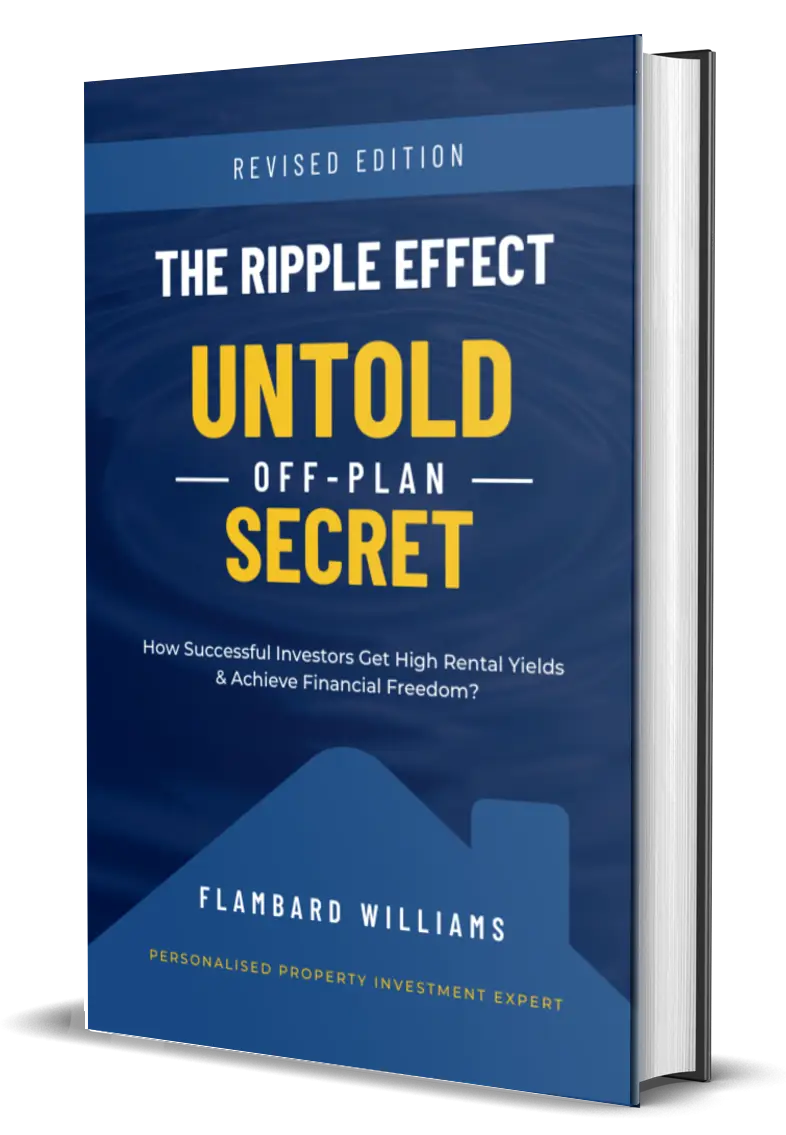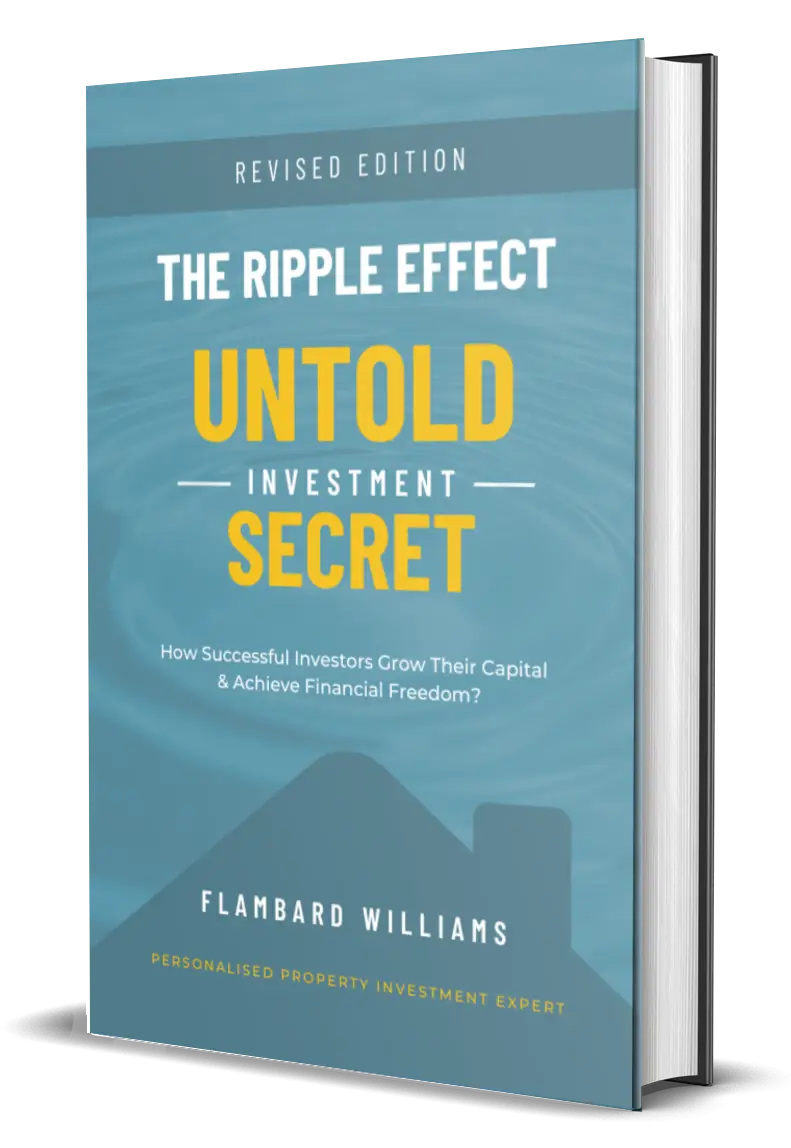So this webinar is all about the future of the UK property market and what we expect to happen over the next few months. How is this also going to impact the property market over the next 1-5 years and beyond.
So let’s start off with the fundamentals we harp on about regularly for those of you who are joining us for the first time on our monthly webinars.
The Fundamentals
The fundamentals are as follows:-
Taxation
Legislation
Interest Rates/Liquidity
The reality is, there is always news (Elections/Brexit/COVID etc) that can affect consumer confidence and this does have an impact. Typically it is only short-term and it is these three fundamentals that really affect the market.
Taxation
So taxation, we have seen a case of this recently when the government announced the Stamp Duty holiday. This started a snowball effect. The reality was that the savings you had on the average price of a property was not huge, it only really started to make a difference when you were between £400-£500k.
However, what did happen was that the media caught onto the idea and whipped the market into a frenzy. More and more thought that they were going to miss the market so they searched and purchased, then the next batch and so on and so on. The market then went up on average of 6% year on year and over 10% year on year in places such as Liverpool and Manchester. What actually happened was people were bidding more for the property than they were saving in Stamp Duty, with the Stamp Duty Holiday being the catalyst.
Legislation
So these are things such as if the government stopped people buying more than one home, stopped clients from overseas buying, restricted viewings due to COVID, changed the regulations with the letting market such as making it harder to evict tenants, etc. So any kind of legislation can make a difference we just have to look beyond the initial rules and get to the bottom of what the long-term effects will be.
Interest Rates and Liquidity
Last but not least is interest rates and liquidity. We saw in the 2000s what happened when interest rates increased, however, what people don’t realize is that interests rates were increasing for 5 years. At the end of 2003, the rates stood at 3.75% moving up to 5.5% by the end of 2007. Now, this was the fuse that was lit which was slowly making its way to the metaphorical bomb that went off in 2008.
Of course, it was not just the interest rate increases alone that was the issue, it was also the fact the mortgages and loans were lent out without the kind of stress test that are around today. We saw many people who shouldn’t have really had loans granted to them. Because of this a small change in the interest rates made a huge difference and that meant the affordability wasn’t there. Add that to the fact the banks and liquidity issues meant the public lost faith in the system and this caused numerous issues globally.
So now we know about the fundamentals and what kind of impact they had in the past we can look to the future and what is likely to happen.
Buy Property | Lettings | Short Term Lets
The Future
Let’s first look at taxation. Well, the Stamp Duty holiday has now ended, and not much changed. Appetite has not been dampened but we do expect the prices at the £500k mark that were getting bid up to no longer happen anymore. However, apart from that, there is not much in the way of taxation changes that we expect to take place. The only change that has been talked about recently is another increase in what overseas clients have to pay in Stamp Duty. At the moment an overseas client has to pay 2% more than a UK buyer but the government has spoken about increasing this to 3-4%.
In regards to legislation, we don’t expect any short-term changes.
However, we do know there is going to be a change in the interest rate. Now we published a video 4 days before the latest interest decision where we predicted it would remain the same and that is what has happened. Most other observers had factored in a rise in the rates, however, our view was that we have only just come off the furlough scheme which could skew the figures so we need to let the dust settle a little before big decisions are made.
There are two more chances where the Bank of England over the next few months can make a change in the rate. December and February.
I personally feel that they should wait until February to make a decision whether to raise the rates or not. The bank is under pressure to do something about the inflation levels though so they may feel they just have to bite the bullet and go for it in December.
All that said, we know the rate rise is inevitable. So what will happen when the rates do rise.
First of all we will have to see how much they raise it by. The bank are not wanting to give anyone a massive shock to the system so they will probably raise little and often, rather than all in one go.
Also we have to look at the rates. We are currently at historic lows of just 0.1% so even a 500% jump would take the rates to just 0.5%, which is still extremely low. Take the rates back in 2007-2008, they were 5.5% so we are nowhere near these levels.
So what is likely to happen. Well we could see a lot more people switch mortgages to interest only, rather than a repayment mortgage, this will reduce the monthly cost. We will still see lenders compete for clients so there will be still be fantastic low rates on offer.
However, the main reason we are all here today is to understand where the prices are heading.
Manchester | Liverpool | Birmingham | Kent
Where are the Prices Heading?
We have had a property market that has been going in one direction for just over 10 years, now I don’t think that is going to stop. I still feel that the market will keep pushing on, albeit, at a lower rate. We have seen over the last decade that we still had great years of property growth despite the interest rate being 5 times higher than where it is today. There may have been some sluggish years but overall the UK property market has increased.
Now, we predicted that the UK property market would grow after COVID rather than fall, however, we certainly did not predict by as much as it did.
The feel now is that the market will rise more inline with our estimates back then. On average over the next 5 years, between 3-5%, with some years being higher and some a little lower, overall though we still see the market having some steady growth. Add this onto the 5% rent you would be achieving, that is still an inflation busting 10% gain year on year.
Now if you had a £50,000 deposit, from an investment perspective these are great gains as when you buy a property, you are not only making 10% on your initial £50,000 deposit but also your £150,000 that you have borrowed. So if you are borrowing at 4% and making 10% you are 6% better off on money that is not yours. You can’t do that with other investments.
However, we have to look at when we feel the market will be squeezed. If inflation keeps rising uncontrollably then the Bank of England will have to step in. If we see interest rates hitting 3-4% we could be back where we were 15 years ago when mortgages were over 5-6% and things become tight. Lower bids will be put on property and this will have a spiral effect but again, I don’t think we are at that stage.
Another factor that has helped is the fact banks have been stricter on their lending criteria. Where as before you could self certify (basically tell the bank what you earnt) you simply can’t do that anymore so a lot more checks are done to protect the consumer.
Overall property is still a great buy with long term growth and income benefits.
Subscribe to our YouTube channel for more property content and also be the first to know when our new videos are released.
























 Exclusive Property Launch Invitations
Exclusive Property Launch Invitations Customised Market Reports
Customised Market Reports Exclusive Access to Off-Market Properties
Exclusive Access to Off-Market Properties Networking Events
Networking Events





